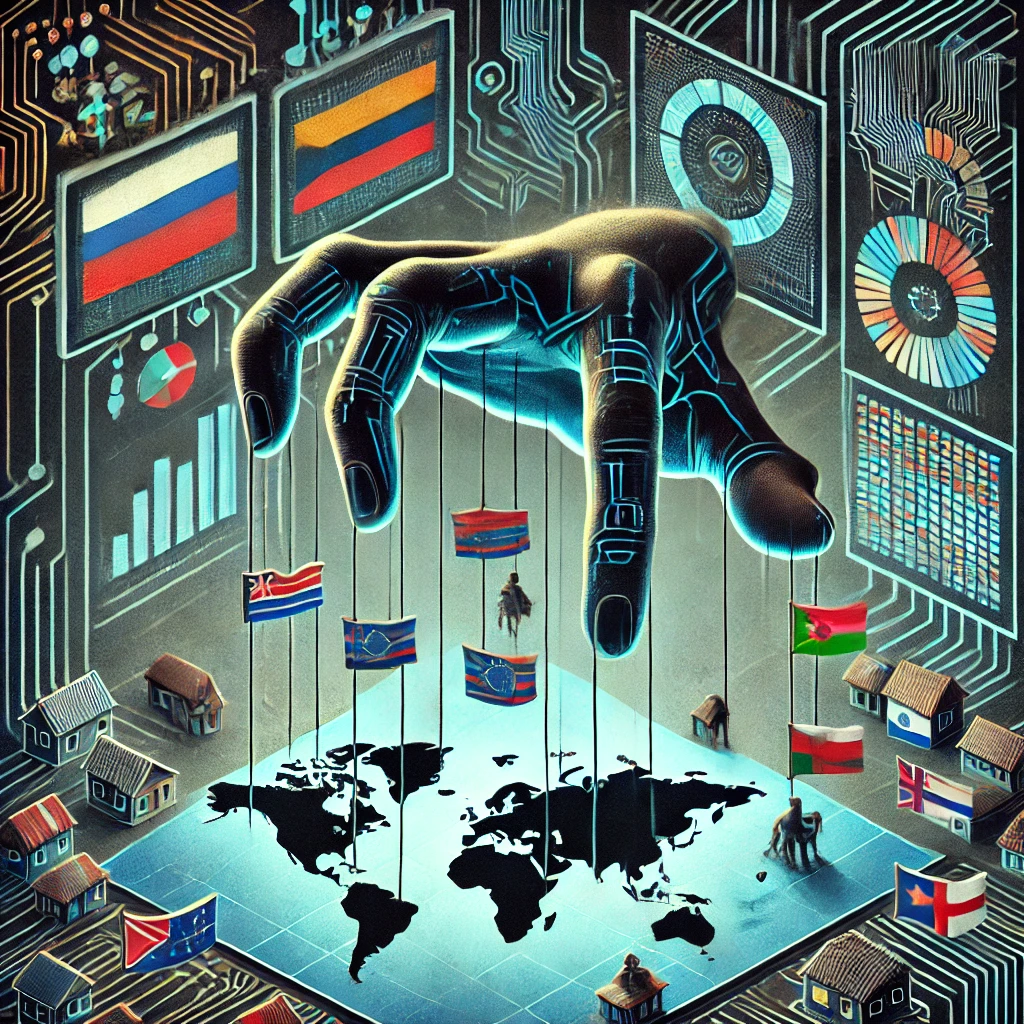Being human in the time of neuroscience and artificial intelligence involve carefully exploring the nexuses of complexity where valid ideas are nevertheless in tension, manifesting subtleties and challenges that must not be overlooked. Each page expresses the existing tension(s) between ideas and within each theme, which emerged in the collective discussions, and are then complemented by insights from NHNAI network researchers.
Complexity on democracy #5: The stake of sovereign AI capabilities (for economic development)

AI generated content
Participants from Kenya expressed their strong hope that AI can better the condition of the most vulnerable and excluded. However, they also worry about the lack of sovereign resources and capabilities, as well as vulnerabilities in terms of literacy and access to technologies. They point a risk of technological dependence and colonization, also implying that AI development in their country may not lead to local economic development.
This problem of techno-colonization can be extended to any countries with the question of benefit sharing within the framework of a “cost-free” business model where services are provided “for free” in exchange of data.
Insights from NHNAI academic network:
The dominant discourse is, of course, that which encourages technological development in Africa and thus leads the continent along the path we have mapped out of a mathesis universalis. As Franck Kié, General Commissioner of the Cyber Africa Forum, explains:[1]
It is by answering these key questions that Africa and its 54 States will be able to rise to the challenge of making their digital transformation and the full adoption of artificial intelligence a real lever for growth, to become the digital continent of the decades to come. Some countries are already in the vanguard on this issue, and the others must follow. We have the means, we have the will: let’s get to work! Cyber Africanum est!
More critical are the words of Senegalese expert Seydina Moussa Ndiaye:[2]
The biggest threat for me is colonization. We may end up with large multinationals in AI that will impose their solutions throughout the continent, leaving no room for creating local solutions. Most of the data currently generated in Africa is owned by multinationals whose infrastructure is developed outside the continent, where most African AI experts also operate. It’s a loss of African talent.
The other important element to consider is in the context of the fourth industrial revolution. The power of AI combined with advances in biotechnology or technology could be used, and Africa could be the place where all these new solutions are actually being tested. If it’s not supervised, we could end up with tests that would take place on humans with chips or even integrated biotechnology elements that we improve. These are technologies that we don’t really master well. In regulatory terms, there are certain aspects that have not been considered. The very framework for the application of ideas and existing regulations is not effective.
In concrete terms, and when you don’t control these things, it could happen without anyone knowing. We could have Africa being used as a Guinea pig to test new solutions, and this could be a great, great threat for the continent.
Additional interesting resources:
- An interesting report on this subject from an optimistic (non-critical) point of view: https://cpccaf.org/ia-quel-impact-sur-lafrique/
- For a more nuanced and critical account, see: Kouassi Touffouo Frederic PIRA, « Vulgarisation des théories d’adoption et d’appropriation des innovations technologiques pour une intelligence artificielle africaine », Communication, technologies et développement [online], 11 (2022), http://journals.openedition.org/ctd/6809
[1] (Our translation) https://www.jean-jaures.org/publication/cyber-africanum-est-les-enjeux-de-lintelligence-artificielle-et-de-la-cybersecurite-en-afrique/
[2] https://www.un.org/africarenewal/magazine/january-2024/interview-ai-expert-warns-digital-colonization-africa

